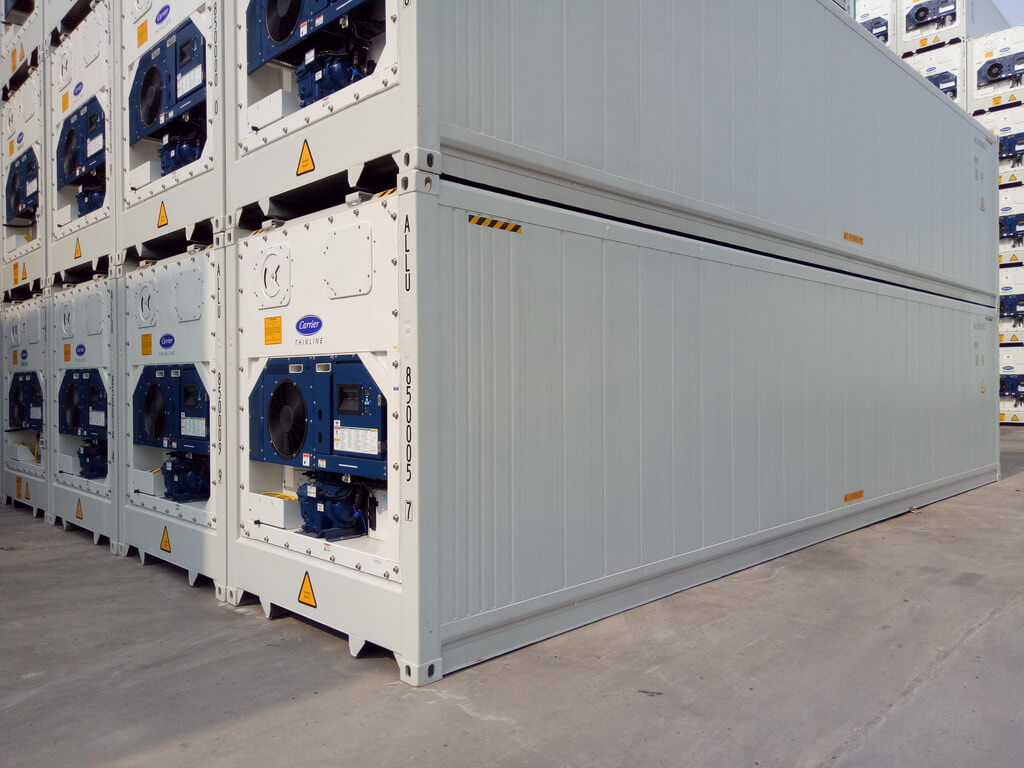Reefer containers are refrigerated shipping containers that transport temperature-sensitive goods such as food, beverages, pharmaceuticals, and chemicals. They are essential for the global trade of perishable products, as they can maintain the optimal temperature and humidity levels for the cargo during transit.
There are three significant types of reefer containers: integral, porthole, and insulated. Each class has advantages and disadvantages, depending on the cargo’s nature, the journey’s duration, and the availability of power sources.
Integral reefer containers are the most common and modern type of reefer containers. They have a built-in refrigeration unit that controls the temperature and air circulation inside the container. They can be plugged into an external power source at the port or on board the ship, or they can use a diesel generator set (genset) for power supply. Integral reefer containers are versatile and can handle a wide range of temperatures, from -35°C to +30°C. They are also easy to monitor and maintain, as they have digital displays and alarms that indicate the status of the container.
Porthole reefer containers are older and more straightforward than integral reefer containers. They do not have a built-in refrigeration unit but instead rely on external cooling systems that supply cold air through openings (portholes) on the front wall of the container. The cold air circulates inside the container and exits through another set of portholes on the rear wall. Porthole reefer containers can only maintain a constant temperature, not adjust it, so they are suitable for cargo that does not require precise temperature control. They also need a continuous power source, as they do not have gensets. Porthole reefer containers are cheaper and lighter than integral reefer containers, but they are less efficient and reliable.
Insulated reefer containers are similar to porthole reefer containers, except they do not have any openings for air circulation. Instead, they have thick layers of insulation that keep the cargo cool or warm, depending on the initial temperature. Insulated reefer containers do not need any power source, as they rely on passive cooling or heating. However, they can only preserve the cargo for a limited period, usually up to 10 days, before the temperature changes. Insulated reefer containers are ideal for short-distance journeys or loads that can tolerate slight temperature variations.
 عربي
عربي عربي
عربي